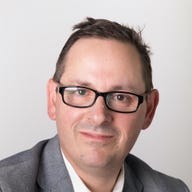Ericsson asked about 'favourite children' in Vodafone-TPG blocked merger case

The final day of week two of the Australian Competition and Consumer Commission's (ACCC) battle with Vodafone and TPG over their proposed merger started with some legal procedural tango, as alleged errors in the affidavit of Friday's first witness, Ericsson's Nicholas Bromhead, were reviewed.
On the witness stand, Bromhead was asked about the relationship between Ericsson and TPG. Other than a lunch meeting in Barcelona during Mobile World Congress in 2019 between Bromhead, representatives of TPG, and other Ericsson personnel, it was his understanding that TPG's dealings with Ericsson were limited.
Another question from Vodafone's counsel, Dr Ruth Higgins QC, postulated that TPG was concerned it might have been at a disadvantage given Ericsson's longstanding relationship with Telstra -- a connection that goes back over a hundred years he said. Higgins used the analogy that Ericsson would have had three children if it signed on TPG, but Telstra would have been the "favourite child".
Bromhead countered this assertion, saying that as a "parent", Ericsson would have loved all of those children equally but differently, with each child being unique and having their own special needs.
Ericsson's capacity to provide electricity access for network installations on power poles was also questioned. An affidavit from an expert, who will appear later in the matter, allegedly contradicts some of the data provided by Bromhead.
See also: Ericsson and Telstra make standalone 5G call
The court was then cleared for part of the session as highly confidential documents from Telstra were discussed. On resumption, Higgins resumed questioning around the now-abandoned small-cell network deployment and the effects of the ban against Huawei equipment on Ericsson's business.
In addition to the power issue that was discussed earlier in the session, Higgins asked Bromhead whether antenna size was a factor for installations on utility poles. Looking at that and other issues, like available bandwidth and coverage, Bromhead said he had worked on proposing a solution that would overcome some of the challenges of TPG's proposed network, such as increased interference from antennae positions.
Bromhead explained that interference management is done according to a set of standards that are implemented using proprietary algorithms by different vendors. So the way Ericsson handles interference, according to Bromhead, differs from Huawei's approach and this would affect network performance.
Along with a number of other technical factors, Bromhead said the network design proposed by Huawei might need to be revisited as Ericsson's equipment might not be working optimally.
Higgins then moved onto questioning regarding how spectrum delivers performance.
Higgins put it to Bromhead that spectrum would add more capacity. But she also suggested that this was not a factor in determining how many users could have potentially connected to TPG's proposed network. Bromhead argued strongly against this, however, saying capacity, spectrum, and performance were all related.
The cross-examination by Higgins became more forceful as she alleged Bromhead had not thoroughly read all of the emails and other evidence attached to his affidavit. Justice Middleton gave Bromhead an opportunity to read parts of his affidavit again and answer some questions from the bench.
The questioning continued with Higgins clinically dissecting Bromhead's affidavits and asking pointed questions about whose advice he was taking -- he was unable to recall who provided him with information -- and questioning the basis of significant sections of his evidence.
RELATED COVERAGE
- TPG kept looking into 5G even though Teoh killed the project
- VHA under the spotlight as ACCC continues merger fight
- TPG put key investor 'over a barrel'
- Teoh wanted his TPG kingdom to be a mobile operator 'no matter what': ACCC
- TPG profits halved from abandoning mobile network rollout after Huawei ban
- TPG reiterates claim of needing Vodafone merger post-Huawei ban
- ACCC on TPG-Vodafone: Consumers need the benefits of vigorous competition